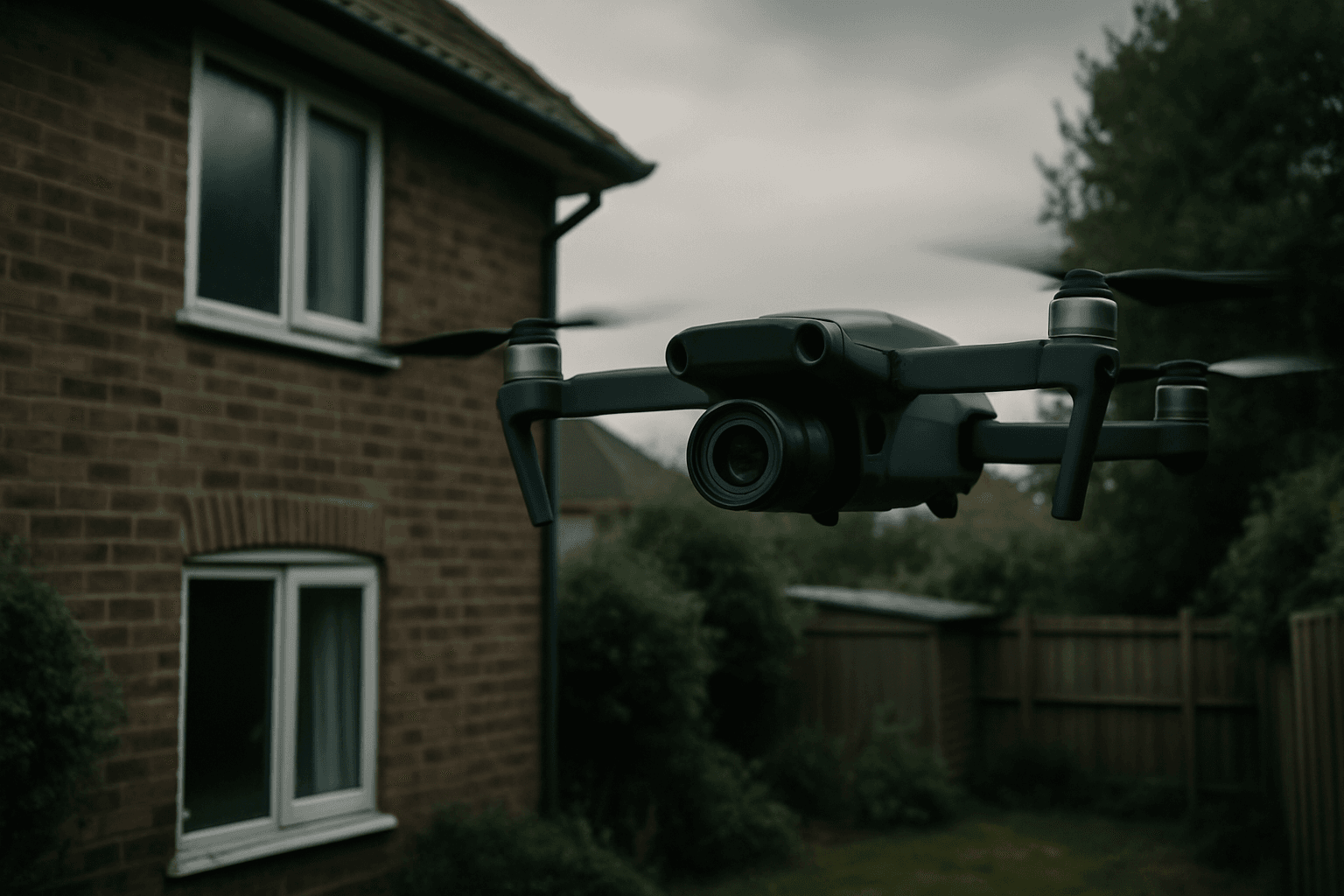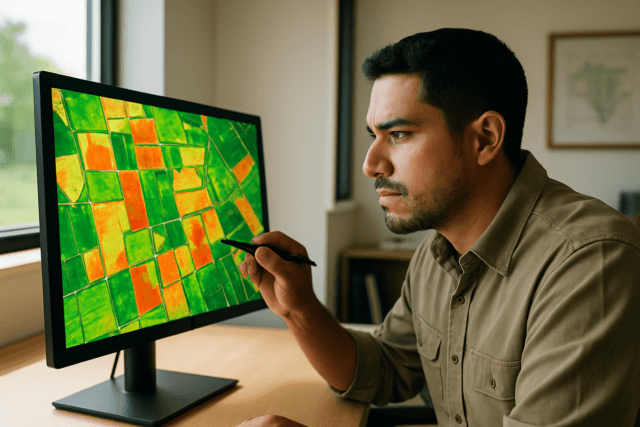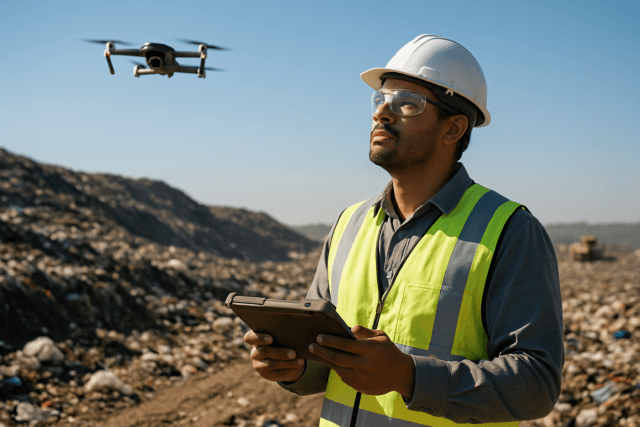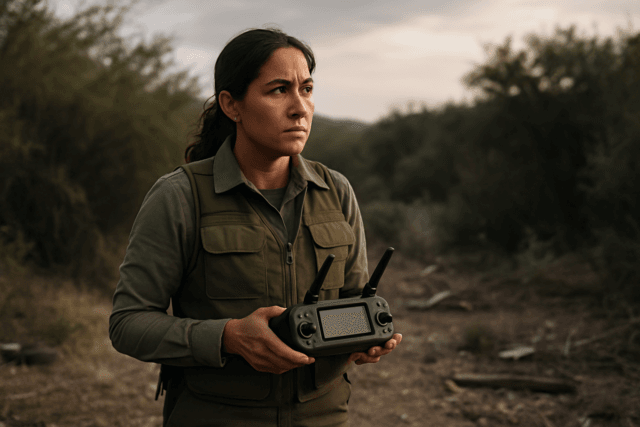Drones have rapidly evolved from military tools to everyday gadgets, finding applications in various sectors, including photography, surveillance, delivery services, and infrastructure inspection. While drones offer numerous benefits, their increasing presence raises significant privacy concerns, particularly in the UK. This article explores the various aspects of drone privacy concerns in the UK, including the legal framework, potential risks, and ethical considerations.
The Rise of Drones and Their Impact on Privacy
Drones, also known as unmanned aerial vehicles (UAVs), are remotely controlled aircraft that can be equipped with cameras, sensors, and other data collection devices. Their ability to fly at various altitudes and access hard-to-reach areas makes them highly effective for surveillance and data gathering. However, this also makes them a potential threat to individual privacy.
How Drones Impact Privacy
Drones can impact privacy in several ways:
- Surveillance: Drones equipped with high-resolution cameras can capture images and videos of people in their homes, gardens, or other private spaces without their knowledge or consent.
- Data Collection: Drones can collect various types of personal data, including images, videos, audio recordings, geolocation data, and even signals from smartphones.
- Tracking: Drones can track the movements of individuals, vehicles, and other objects, raising concerns about surveillance and potential misuse of data.
- Intrusion: Drones can intrude on private property and airspace, causing disturbance and anxiety to residents.
Legal Framework for Drone Privacy in the UK
The use of drones in the UK is governed by a combination of aviation regulations and data protection laws. These laws aim to balance the benefits of drone technology with the need to protect individual privacy.
Civil Aviation Authority (CAA) Regulations
The CAA is responsible for regulating the safe and responsible use of drones in the UK. The CAA regulations cover various aspects of drone operations, including:
- Registration: Drones weighing over 250 grams must be registered with the CAA.
- Operator Competency: Drone operators must pass an online test to demonstrate their understanding of aviation regulations and safety procedures.
- Flight Restrictions: Drones are subject to flight restrictions in certain areas, such as near airports, prisons, and other sensitive locations.
- Visual Line of Sight: Drone operators must maintain a visual line of sight with their drone at all times, unless they have obtained special permission from the CAA.
- Respect for Privacy: Drone operators must respect other people’s privacy and avoid flying over private property without permission.
Data Protection Laws
The use of drones that collect personal data is subject to data protection laws, including the UK General Data Protection Regulation (GDPR) and the Data Protection Act 2018. These laws set out the principles for the lawful and transparent processing of personal data.
Key principles of data protection laws relevant to drone operations include:
- Lawfulness, Fairness, and Transparency: Personal data must be processed lawfully, fairly, and transparently. Drone operators must inform individuals if their personal data is being collected and how it will be used.
- Purpose Limitation: Personal data must be collected for a specific, explicit, and legitimate purpose and not further processed in a manner that is incompatible with that purpose.
- Data Minimisation: Personal data must be adequate, relevant, and limited to what is necessary for the purpose for which it is processed.
- Accuracy: Personal data must be accurate and kept up to date.
- Storage Limitation: Personal data must be kept for no longer than is necessary for the purpose for which it is processed.
- Integrity and Confidentiality: Personal data must be processed in a manner that ensures appropriate security, including protection against unauthorised or unlawful processing and against accidental loss, destruction, or damage.
Information Commissioner’s Office (ICO) Guidance
The ICO is the UK’s independent authority for data protection and freedom of information. The ICO has published guidance on the use of drones for commercial purposes, highlighting the data protection and privacy implications. The ICO guidance emphasizes the importance of transparency, accountability, and respect for individual rights.
Potential Privacy Risks Associated with Drones
Despite the legal framework and guidance, several potential privacy risks are associated with the use of drones:
- Invasion of Privacy: Drones can be used to spy on people in their homes, gardens, or other private spaces, violating their right to privacy.
- Data Security Breaches: Data collected by drones can be vulnerable to hacking and other security breaches, potentially exposing sensitive personal information.
- Misuse of Data: Data collected by drones can be misused for various purposes, such as stalking, harassment, or discrimination.
- Lack of Transparency: Drone operations are often conducted without the knowledge or consent of the people being surveilled, raising concerns about transparency and accountability.
- Chilling Effect on Freedom of Expression: The use of drones for surveillance can have a chilling effect on freedom of expression and assembly, as people may be less likely to participate in public demonstrations if they fear being monitored.
Ethical Considerations in Drone Use
In addition to legal requirements, there are also ethical considerations that should guide the use of drones. These considerations include:
- Respect for Privacy: Drone operators should respect the privacy of individuals and avoid collecting personal data without their knowledge or consent.
- Transparency: Drone operations should be conducted in a transparent manner, with clear information provided to the public about the purpose, scope, and duration of the surveillance.
- Accountability: Drone operators should be held accountable for their actions and should be subject to oversight and review.
- Minimising Harm: Drone operations should be conducted in a way that minimises harm to individuals and the environment.
- Public Benefit: The use of drones should be justified by a clear public benefit that outweighs the potential privacy risks.
Best Practices for Protecting Drone Privacy
To mitigate the privacy risks associated with drones, several best practices should be followed:
- Privacy by Design: Drone manufacturers should incorporate privacy-enhancing features into the design of their products, such as blurring faces or removing unnecessary personal information automatically.
- Data Minimisation: Drone operators should collect only the personal data that is necessary for the specific purpose for which the drone is being used.
- Data Security: Drone operators should implement appropriate security measures to protect personal data from unauthorised access, use, or disclosure.
- Transparency and Notification: Drone operators should inform individuals when their personal data is being collected and how it will be used.
- Consent: Drone operators should obtain consent from individuals before collecting their personal data, where appropriate.
- Oversight and Accountability: Drone operations should be subject to oversight and review by an independent body.
- Public Education: The public should be educated about the privacy risks associated with drones and how to protect their privacy.
- Clear Policies: Implementing clear, written guidelines regarding drone use, specifying when, where, and how drones can be deployed.
- Independent Oversight: Conducting external audits and providing public reports on drone usage data to ensure accountability.
Addressing Drone Privacy Concerns in the UK
Addressing drone privacy concerns requires a multi-faceted approach involving legal frameworks, ethical guidelines, technological solutions, and public awareness.
Strengthening Legal Frameworks
The legal framework for drone privacy should be strengthened to provide clearer guidance on the collection, use, and storage of personal data. This could include:
- Specific Drone Privacy Legislation: Enacting specific legislation that addresses the unique privacy challenges posed by drones, rather than relying on existing data protection laws.
- Enhanced Enforcement Powers: Giving the ICO greater powers to investigate and enforce data protection laws in relation to drone operations.
- Clarity on “Reasonable Expectation of Privacy”: Defining more clearly what constitutes a “reasonable expectation of privacy” in the context of drone surveillance.
Promoting Ethical Guidelines
Ethical guidelines should be developed to guide the responsible use of drones. These guidelines should be developed in consultation with stakeholders, including drone operators, privacy advocates, and the public.
Developing Technological Solutions
Technological solutions can be developed to mitigate the privacy risks associated with drones. These solutions could include:
- Privacy-Enhancing Technologies: Developing and deploying technologies that can blur faces, anonymise data, or prevent the collection of personal data altogether.
- Drone Detection Systems: Implementing systems that can detect and track drones, allowing individuals to be aware of when they are being surveilled.
- Geofencing: Using geofencing technology to restrict drone operations in certain areas, such as residential neighbourhoods.
Raising Public Awareness
Public awareness campaigns can be conducted to educate people about the privacy risks associated with drones and how to protect their privacy. These campaigns could include:
- Information Leaflets: Distributing information leaflets providing guidance on drone privacy.
- Public Service Announcements: Broadcasting public service announcements on television, radio, and online.
- Community Workshops: Organising community workshops to discuss drone privacy issues and potential solutions.
Conclusion
Drones offer numerous benefits, but their increasing presence raises significant privacy concerns in the UK. By strengthening legal frameworks, promoting ethical guidelines, developing technological solutions, and raising public awareness, it is possible to mitigate the privacy risks associated with drones and ensure that they are used in a responsible and ethical manner. Balancing the benefits of drone technology with the need to protect individual privacy is essential to maintaining public trust and fostering a safe and secure society.





